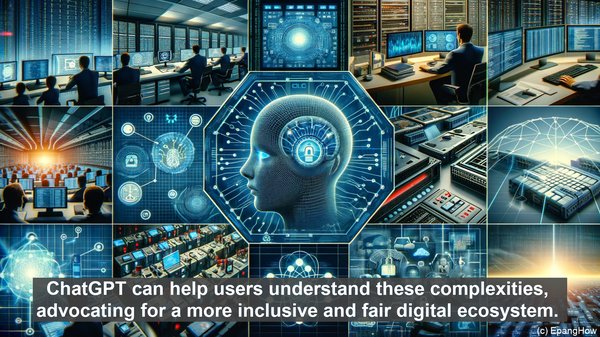Introduction: The Expanding Digital Landscape
Hello, everyone! The digital landscape is expanding at an unprecedented pace, transforming the way we communicate, share information, and engage with the world. But with this rapid growth comes a host of ethical challenges. From privacy concerns to the spread of misinformation, the digital realm is a complex web of dilemmas. Today, we’ll explore these issues and how ChatGPT can serve as your expert guide in navigating them.
The Role of ChatGPT: An AI-Powered Guide
ChatGPT, powered by OpenAI’s cutting-edge language model, is not just a chatbot. It’s a sophisticated tool that can understand, analyze, and provide insights on a wide range of topics, including digital and social media ethics. By leveraging its vast knowledge base and contextual understanding, ChatGPT can offer nuanced perspectives and practical advice, making it an invaluable resource for anyone seeking guidance in this domain.

Understanding the Ethical Landscape: Key Concepts
Before diving into specific dilemmas, it’s crucial to grasp some foundational concepts. Consent, for instance, is a cornerstone of digital ethics. Are users aware of how their data is being collected and used? Transparency, too, is vital. Platforms should be open about their algorithms and content moderation policies. Additionally, issues like online harassment, cyberbullying, and the digital divide demand our attention. By understanding these concepts, we can better navigate the ethical maze.
The Challenge of Misinformation: A Global Concern
Misinformation, or the spread of false or misleading information, is a pressing issue in the digital age. From health-related myths to political propaganda, the consequences can be far-reaching. ChatGPT can play a crucial role here. By fact-checking claims, providing accurate information, and even flagging potentially dubious content, it can empower users to make informed decisions and curb the spread of falsehoods.
Privacy in the Digital Age: Balancing Convenience and Security
In an era of targeted ads and personalized recommendations, privacy often takes a backseat. But it’s a fundamental right that should be safeguarded. ChatGPT can guide users on privacy best practices, such as using strong passwords, enabling two-factor authentication, and being cautious about sharing sensitive information. By adopting these measures, individuals can enjoy the benefits of the digital world while minimizing the risks.
The Role of Platforms: Content Moderation and Algorithmic Bias
Social media platforms, search engines, and other digital spaces are not just passive entities. They shape our online experiences through algorithms and content moderation policies. However, this power comes with responsibility. Transparency in algorithmic decision-making and addressing biases are crucial steps. ChatGPT can help users understand these complexities, advocating for a more inclusive and fair digital ecosystem.

